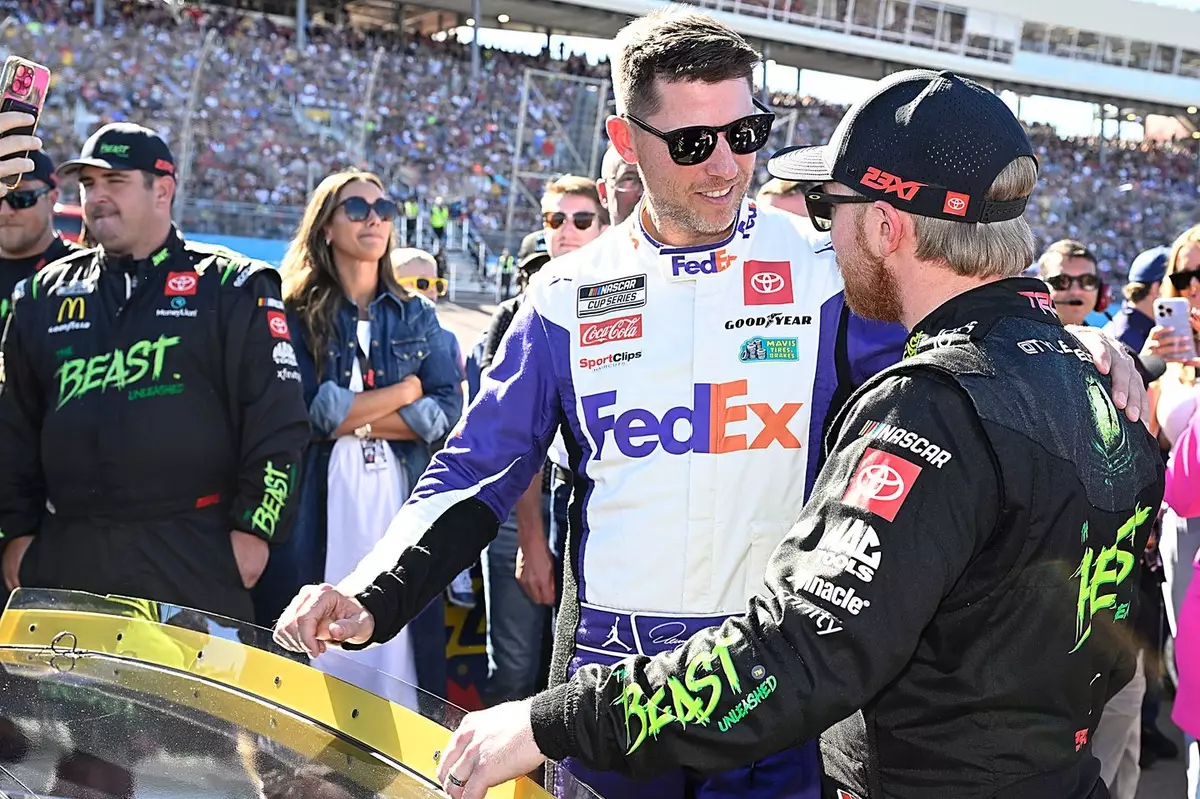In a significant legal ruling, 23XI Racing and Front Row Motorsports (FRM) have successfully obtained a preliminary injunction that allows them to retain their charters for the upcoming 2025 NASCAR season. This decision is pivotal as it emerges amidst an active antitrust lawsuit directed against NASCAR and the France family, shedding light on the competitive dynamics within the world of professional stock car racing. The ruling effectively suspends the enforcement of contested sections of the 2025 Charter Agreement, serving as a temporary measure while the litigation progresses.
For any legal team’s success in securing an injunction, there are several critical criteria they must meet. In this case, both 23XI and FRM had to demonstrate probable success on the merits of their case, the potential for irreparable harm if the injunction were not granted, a favorable balance of equities, and evidence that the injunction serves the public interest. Notably, their initial attempt for such relief was denied earlier in November but the tides turned when they reframed their approach. Instead of directly requesting charters, they shifted to seeking the ability to compete under the 2025 Charter Agreement, minus the controversial release clause that currently hampers their legal options.
The journey of this case has seen a change in presiding judges, transitioning from Judge Frank D. Whitney, who rejected the original request for an injunction, to Judge Kenneth D. Bell, who has now sided with the racing teams. This transition may signal a shift in judicial perspectives on the antitrust claims presented by the teams. The ruling has significant implications not only for the immediate future of 23XI and FRM but also for the wider NASCAR ecosystem, as it grants these teams the chance to proceed with their operations, including the potential acquisition of additional charters from the now-defunct Stewart-Haas Racing.
This decision allows both organizations to broaden their competitive footprint, as 23XI is expected to introduce a third car driven by Riley Herbst and FRM appears eager to make similar expansions, with rumors circulating about Zane Smith occupying a potential third seat. Such developments underscore how pivotal the legal conclusions surrounding their charters are to their operational strategies.
A critical component of the court’s decision is the acknowledgment of NASCAR’s monopolistic power over the premier stock car racing market in the United States. The court noted that NASCAR holds a kind of monopoly/monopsony influence, controlling which teams may participate at the apex level of this competitive landscape. This determination lends credence to the teams’ central argument in their antitrust lawsuit, which charges NASCAR with acting as an unlawful monopoly that stifles competition.
The court’s recognition that NASCAR maintains a 100% market share in its sector is a striking estimation. It challenges existing norms and perceptions within the world of professional motorsport, where alternatives like Formula 1 and IndyCar are deemed non-substitutable. The implications of this ruling could reverberate throughout the industry, as it calls into question the very structure that governs team competition and market entry.
Adding a layer of urgency to the case, the ruling underscored the immediate concerns of several drivers within the 23XI and FRM rosters. As articulated in the court’s findings, the threat of contract voidance has become a pressing issue. Notably, Tyler Reddick from 23XI could face significant repercussions if they were to compete as open teams, including the risk of his contract being annulled, which would free him to seek employment with rival organizations.
The fears of instability have been echoed across the spectrum of drivers associated with these teams, showcasing how legal uncertainties can ripple through their careers. As the case progresses, these athletes remain in a precarious position, particularly given that NASCAR could still potentially appeal this recent ruling, setting the stage for a complex legal environment leading up to the 2025 season.
The preliminary injunction won by 23XI Racing and Front Row Motorsports stands as a watershed moment in the intersection of sports, law, and market dynamics. As the ongoing antitrust lawsuit unfolds, the racing community watches closely, aware that the outcomes may fundamentally reshape the competitive landscape of NASCAR. The interplay between legal frameworks and market dominance highlights the importance of regulatory oversight in ensuring fair competition, particularly within monopolistic structures. As the 2025 season approaches, all eyes will be on both the legal proceedings and the responses of NASCAR, as they navigate this challenging terrain.

